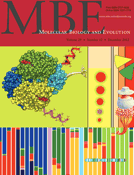
Briefings in Functional Genomics
Scope & Guideline
Connecting Research and Discovery in Genomics
Introduction
Aims and Scopes
- Functional Genomics and Molecular Biology:
The core aim is to explore the genetic basis of biological functions and disease mechanisms, leveraging high-throughput sequencing technologies and advanced bioinformatics. - Multi-Omics Integration:
The journal emphasizes the integration of various omics data (genomics, transcriptomics, proteomics, etc.) to provide comprehensive insights into complex biological systems. - Computational Genomics and Machine Learning:
A significant focus on computational approaches, including machine learning and AI applications, to analyze genomic data, predict gene functions, and identify biomarkers. - Disease Mechanisms and Therapeutics:
Research published often investigates the molecular mechanisms underlying diseases and explores potential therapeutic targets through genomic insights. - Agricultural and Environmental Genomics:
The journal also addresses functional genomics in the context of crop improvement and environmental adaptation, highlighting the application of genomics in agriculture.
Trending and Emerging
- Artificial Intelligence in Genomics:
The application of AI and machine learning techniques in genomic research is rapidly increasing, facilitating more accurate predictions and analyses of complex genomic data. - Single-Cell Genomics:
There is a marked rise in studies utilizing single-cell sequencing technologies, allowing for detailed insights into cellular heterogeneity and individualized disease mechanisms. - Integration of Environmental and Genomic Data:
Emerging research increasingly focuses on the interplay between environmental factors and genomic data, particularly in understanding phenotypic adaptations in various species. - Translational Genomics:
A growing trend towards translational research is evident, where findings from functional genomics are being directly linked to clinical applications and therapeutic development. - Microbiome and Host Interaction Studies:
Research on the human microbiome and its interaction with host genomics is becoming a prominent theme, highlighting its relevance in health and disease.
Declining or Waning
- Basic Genetic Mechanisms:
Research focusing solely on fundamental genetic mechanisms without applied perspectives appears to be waning, as the journal shifts towards more integrative and applied studies. - Traditional Genomic Techniques:
There is a noticeable decline in publications centered around conventional genomic methodologies, as more researchers opt for advanced computational and multi-omics approaches. - Single-Organism Studies:
Studies that focus exclusively on single-organism genomic analyses are becoming less prevalent, with a growing preference for cross-species or ecosystem-level investigations.
Similar Journals

G3-Genes Genomes Genetics
Bridging Knowledge Gaps in the Genetics CommunityG3-Genes Genomes Genetics is a prominent open access journal published by Oxford University Press, Inc., dedicated to advancing the field of genetics and genomics. Since its inception in 2011, the journal has become a vital resource for researchers, professionals, and students, featuring high-quality, peer-reviewed articles that cover a broad spectrum of topics within genetics, including clinical genetics and molecular biology. With an impressive standing reflected in its 2023 Scopus rankings, which positions it in the Q2 category for Genetics (Clinical) and Q1 for Medicine (Miscellaneous), G3 remains at the forefront of scholarly communication in these disciplines. The journal's commitment to open access ensures that cutting-edge research is accessible to a global audience, stimulating collaboration and innovation in the field. For those eager to explore the latest in genetic research, G3 serves as an indispensable platform, inviting contributions that push the boundaries of scientific understanding.

International Journal of Genomics
Unlocking the mysteries of life at the molecular level.International Journal of Genomics is a pivotal open-access publication under the esteemed HINDAWI LTD, dedicated to advancing the fields of genomics, biochemistry, genetics, and molecular biology. Established in 2013, this journal aims to disseminate innovative research findings and foster scholarly dialogue among researchers, professionals, and students alike. With a robust Impact Factor reflective of its commitment to quality, the journal has achieved a Q3 ranking in Biochemistry, Genetics, and Molecular Biology, as well as notable placements in Pharmaceutical Science, indicating its broad relevance and influence in these interconnected fields. The journal is indexed in esteemed databases, ensuring high visibility and accessibility for published works. As an open-access journal, it prioritizes the sharing of knowledge across borders, facilitating greater collaboration and advancement in genomic research globally. Join the academic community in exploring the vast potential of genomics through the International Journal of Genomics, based in Egypt, and reaching audiences worldwide from its London office.

NAR Genomics and Bioinformatics
Leading the Charge in Genomic Research and AnalysisNAR Genomics and Bioinformatics, published by Oxford University Press, is a leading open-access journal that has been at the forefront of research in genomics and computational biology since its inception in 2019. With an impressive impact factor and a consistent ranking in the Q1 category across multiple fields—namely Applied Mathematics, Computer Science Applications, Genetics, Molecular Biology, and Structural Biology—this journal stands as an influential platform for disseminating innovative findings and methodologies. Researchers and professionals have the opportunity to engage with high-quality, peer-reviewed articles that reflect the latest advancements in both theoretical and applied aspects of bioinformatics. The journal's commitment to open access ensures that groundbreaking research is accessible to a global audience, fostering collaboration and knowledge sharing within the scientific community. The country of publication is the United Kingdom, with a dedicated editorial team striving to maintain the highest standards of academic excellence.

Evolutionary Bioinformatics
Bridging disciplines to illuminate evolutionary mysteries.Evolutionary Bioinformatics, published by SAGE Publications Ltd, is a pioneering open-access journal established in 2005, dedicated to advancing the field of evolutionary biology through innovative computational techniques and bioinformatics. With an ISSN of 1176-9343, it serves as a critical platform for researchers, professionals, and students to disseminate impactful findings and foster collaboration across disciplines. The journal spans a broad scope, contributing significantly to the areas of Ecology, Evolution, Behavior and Systematics, and Genetics, as evidenced by its respectable Scopus rankings and quartile placements in 2023. With a commitment to providing comprehensive, peer-reviewed research articles and tools for sharing knowledge, Evolutionary Bioinformatics plays an essential role in shaping the future of evolutionary studies and bioinformatics. Readers and contributors alike are encouraged to engage with cutting-edge research that pushes the boundaries of understanding in this dynamic field.

Genes & Genomics
Transforming Understanding through Genetic BreakthroughsGenes & Genomics is a prominent academic journal dedicated to the fields of biochemistry, genetics, and molecular biology, published by Springer from South Korea. With an evolving focus on innovative genetic research and its implications, this journal serves as a crucial platform for disseminating knowledge within the scientific community. The journal has been indexed in Scopus and boasts a Q3 quartile ranking in 2023 for its contributions to these disciplines, highlighting its relevance and growing impact. In addition to traditional subscription options, Genes & Genomics supports Open Access, offering broader accessibility for researchers and enthusiasts eager to explore the latest advancements in genetic studies. Since its inception in 2008, the journal has committed to publishing high-quality research that drives forward our understanding of genetics and its applications, making it an essential resource for researchers, professionals, and students alike who are passionate about the complexities and breakthroughs in genomic sciences.

Genetics Research
Driving Progress in Genetic and Medical SciencesGenetics Research, published by HINDAWI LTD, is a distinguished open access journal that has been at the forefront of genetic studies since its inception in 1960. With the transition to open access in 2019, this journal has expanded its accessibility, fostering knowledge dissemination across the global scientific community. Operating out of the United Kingdom, it provides a platform for innovative research in the fields of genetics and molecular biology, encompassing a broad range of topics that are highly relevant to medical sciences. As of 2023, it holds a Q4 classification in Genetics and a Q3 classification in miscellaneous Medicine, reflecting its ongoing commitment to scholarly excellence amidst shifting academic landscapes. While the journal's H-index remains unlisted, its indexed ranking within Scopus, with a rank of #325/328 in the Genetics category highlights the challenges ligated to its niche audience. Nevertheless, it serves as a crucial resource for researchers, professionals, and students eager to contribute to and stay informed on the latest genetic research trends and breakthroughs.

MOLECULAR BIOLOGY AND EVOLUTION
Fostering Innovation in Genetics and Evolutionary StudiesMOLECULAR BIOLOGY AND EVOLUTION, published by Oxford University Press, stands as a premier journal in the fields of molecular biology, evolutionary biology, and genetics. With a proud history dating back to its inception in 1983, the journal spans a convergence period through 2024, providing an exceptional platform for disseminating high-quality research. The journal is recognized in the top Q1 quartile across multiple categories, including Ecology, Evolution, Behavior and Systematics, and Genetics, reflecting its significant impact and relevance in these disciplines. With impressive Scopus rankings—10th in Ecology and Evolution, 12th in Genetics, and 22nd in Molecular Biology—it serves as a vital resource for scholars aiming to stay informed on cutting-edge developments in evolutionary processes and molecular genetics. While it currently does not offer open access, its curated contents resonate well with an audience of researchers, professionals, and students deeply interested in accelerating their understanding of the complexities of life through an evolutionary lens.

Genes
Fostering collaboration in the evolving landscape of genetics.Genes is a leading open-access journal published by MDPI that focuses on advancing the field of genetics and genomics. Established in 2010 and based in Basel, Switzerland, this journal has made significant strides in promoting innovative research in both clinical genetics and molecular biology. With an impact factor reflecting its relevance and quality, Genes has been classified in the Q2 quartile for Genetics and the Q3 quartile for clinical Genetics as of 2023. The journal provides an accessible platform for researchers, professionals, and students to disseminate their findings and explore emerging trends across the genetics landscape. Accessible online since its inception, Genes allows for continuous engagement and collaboration within the scientific community, fostering a deeper understanding of genetic mechanisms and their implications in health and disease.

GENETICA
Connecting Genetics to the Biological WorldGENETICA is a prominent journal published by SPRINGER, dedicated to advancing the field of genetics and its applications across various biological disciplines, including animal science, plant science, and insect science. Since its inception in 1919, the journal has consistently served as a vital platform for researchers and professionals to disseminate high-quality research findings that explore the genetic bases of biological phenomena. With its current scope spanning from 1943 to 2024, GENETICA holds a commendable position in the academic community, as evidenced by its Q2 ranking in both animal science and insect science, and its active contribution to interdisciplinary studies in genetics. Although the journal does not offer open access, it remains accessible through institutional subscriptions and libraries, ensuring its vital research is widely circulated. Researchers, professionals, and students alike will find GENETICA an invaluable resource for the latest discoveries and methodologies in the ever-evolving landscape of genetics.

BMC BIOINFORMATICS
Empowering Research with Open Access Bioinformatics Insights.BMC Bioinformatics is a leading open-access journal published by BMC, dedicated to the rapidly evolving field of bioinformatics. With its inception in 2000, the journal has established itself as an essential resource for researchers, professionals, and students alike, disseminating high-quality research that bridges the gap between biology and computational science. BMC Bioinformatics holds a reputable Q1 ranking in Applied Mathematics and Computer Science Applications, and a Q2 ranking in both Biochemistry and Structural Biology, reflecting its significant impact in these interdisciplinary fields. The journal's broad scope encompasses innovative methodologies, tools, and applications that drive progress in biological research through computational approaches. With open access since its inception, the journal ensures unrestricted availability of cutting-edge research findings, promoting knowledge sharing and collaboration in the global scientific community. As it continues to publish advancements up to 2024, BMC Bioinformatics remains a cornerstone for those seeking to enhance their understanding of bioinformatics and its vital role in modern science.